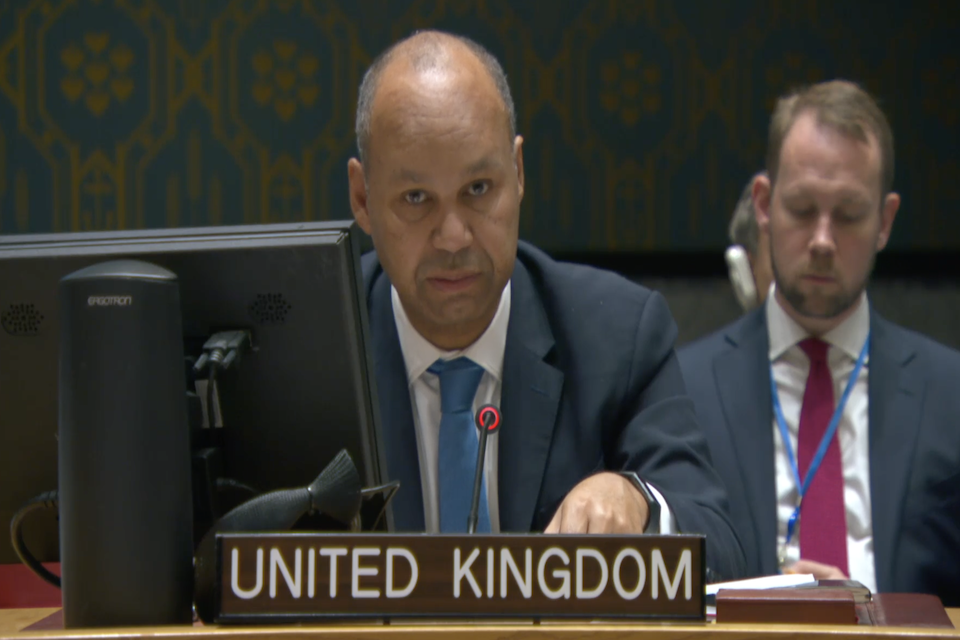We can shift the tide on a period of increased global conflict: UK statement at the UN Security Council
Statement by Ambassador James Kariuki at the UN Security Council meeting on peace through dialogue.

Thank you, President, for convening this important meeting and thanks to ASG Khiari, Former Presidents Bachelet and Mbeki, and Ms. Echavarría Alvarez for their briefings.
The Secretary-General’s analysis in his ‘New Agenda for Peace’ should strike a chord with us all. People around the world are living – and dying – through a period of conflict unmatched in decades. Last year, according to the Peace Research Institute of Oslo, there were 55 active conflicts and there were more battle-related deaths than in any year since 1984.
For more than a decade now, conflict has been trending relentlessly in the wrong direction. How is it that we seem, at times, so powerless to shift this tide? And what is it that this Council, the wider UN membership, and other actors can do to change that trend?
Let me offer three reflections.
First, we can do more, and in a more coordinated manner, to support national actors to prevent and resolve conflict. Indeed, that should be our first port of call. It is enshrined in the UN Charter, which looks first to conflict parties to settle their disputes by peaceful means.
Achieving peace is rarely easy. And lasting peace can only be sustained with true and inclusive national ownership. This often requires hard decisions and the help of good faith friends. The UK has had the privilege of being such a friend through several peace processes. And we continue actively to support conflict resolution efforts bilaterally and through multilateral partners, including as a major voluntary donor to global United Nations peace programmes.
Second, we can support, help strengthen, and coordinate better with regional organisations. This Council’s annual dialogue with the African Union Peace and Security Council is a model that has borne fruit. But it can be further deepened and extended including through stronger linkages between early warning mechanisms, better use of the wider UN and regional peacebuilding architectures and more coordinated support to nationally-led prevention strategies.
Our engagement with CARICOM on Haiti and with ASEAN on Myanmar are other examples where regional bodies play an important role for our partners in this Council.
The UK has always been a strong advocate of Chapter VI of the UN Charter. At times of deep geopolitical division, it is even more important that regional organisations play an active role.
Thirdly, President, where national and regional efforts fail, it is the duty of this Council to take action to safeguard international peace and security. This is a last resort we can better avoid by marshalling all the tools at our disposal for effective prevention, mediation and peacebuilding to avoid escalation.
Thank you.